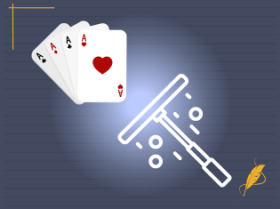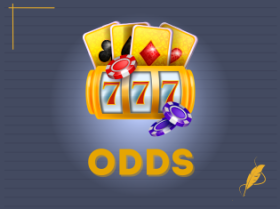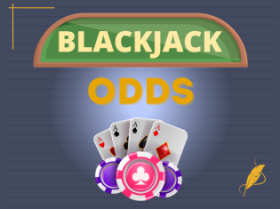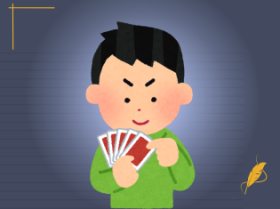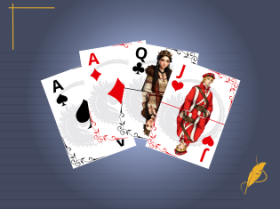Blackjack encompasses numerous theories, proposed strategies, and unconventional techniques available, with some gamers claiming to be successful. However, what are the odds, some of the stats and facts? Let’s take a look.
The Basics of Blackjack
If you’re a novice in the world of blackjack, there are a few simple rules to remember. It doesn’t contain a lengthy list of rules, unlike other card-based casino games, such as poker. Here are the main basics to remember:
- Each player and the dealer receive two cards.
- Your card total must total 21, or as close to 21, for you to win.
- You can “hit” and take another card, or you can choose to “stick” on your total.
Basic Terms
- Hit means to take another card.
- Stand means to keep the total you have.
- Bust is when your total exceeds 21.
- Double down: Double your bet when you have a strong hand. Experienced players will usually do this if they get 10 or 11 from their two dealt cards.
- Split: This splits your hand into two, usually advisable if you have aces or an 8, but not if you have a strong hand where doubling down is recommended.
- Insurance: A side bet offered when a dealer has an ace. It pays out at odds of 2/1, and if a dealer gets blackjack, you receive your insurance back as well as your initial wager. In the long run, this is not a sustainable strategy, but it can be a good short-term way to insulate yourself from a loss.
Keep in mind:Usually, anything over 14 is considered risky territory, and if you roll a 14 or above, you risk going bust.
Although there are plenty of other nuances to the game, so long as you remember these basic terms, you’ll be able to start building your knowledge of how the game works.
Blackjack Bust Odds for Players
The probability of busting ranges from 0% with a hand of 11 or less to 100% when you reach 21. Understanding these odds is key to making informed decisions on your next move.
| Combined total of cards | Percentage of going bust |
|---|---|
| Between 1 and 11 | Zero |
| 12 | 31% |
| 13 | 39% |
| 14 | 56% |
| 15 | 58% |
| 16 | 62% |
| 17 | 69% |
| 18 | 77% |
| 19 | 85% |
| 20 | 92% |
As you can see, there’s a growing chance of going bust the higher your total.
Takeaway:Once you pass the threshold total of 14, the odds begin to tilt heavily in favour of the house.
Blackjack Bust Odds for Dealers
Additionally, by observing the dealer’s exposed cards, you can calculate their chances of going bust as well. The table represents the probability of the dealer having each possible hand value and the total percentage of hands that meet or exceed that particular hand value.
| Dealer hand value | Hand probability % | Cumulative total % |
|---|---|---|
| 21 (an Ace and a 10-point card) | 4.82 | 4.83 |
| 21 (3 or more cards) | 7.36 | 12.19 |
| 20 | 17.58 | 29.77 |
| 19 | 13.48 | 43.25 |
| 18 | 13.81 | 57.06 |
| 17 | 14.58 | 71.64 |
| 16 | 28.36 | 100 |
House Edge in Blackjack
Blackjack yields the best odds in terms of a bet against the house, which is usually under 1%, about 0.5%. At the same time, the house edge is smaller when a game involves a player who has a depth of knowledge and experience at the table, but that doesn’t mean that they will automatically be able to tilt the blackjack odds in their favour.
Basic Facts & Strategies
Blackjack offers some of the best odds in the casino, with players having a chance to win up to 42.22% of the time. However, they can vary depending on factors like the player’s use of basic strategy and the specific house rules in place. Follow the tips to optimise the game’s benefits:
- Avoid insurance: The house edge is around 7.5%, so this is not a good move. Although it pays 2:1; it plays to the advantage of the dealer and the house. Generally speaking, a dealer will only have a blackjack once in every 20 or so hands.
- Avoid games that pay 6:5 on blackjack: A traditional payout is 3:2, and increasing it to 6:5 over several hands increases the house edge by over 1.4%.
- Never split 10s or 5s: There is a 46% chance of getting 17 or less.
- Always split Aces and 8s.
Blackjack Strategies: Fact or Fiction?
Here are some strategies you may have encountered if you have spent a lot of time researching blackjack strategies.
Flat Bets
Exactly as it sounds, this type of bet involves continually betting the same amount repeatedly, regardless of whether you win or lose.
Paroli
This involves doubling down on your win. So, if you bet $10 on a blackjack hand and it wins, you then bet the $20 on the next hand, and so forth. Again, some people believe this is a way of capturing a lucky streak or a purple patch.
We cannot stress this enough – there’s no such thing as being able to identify a lucky streak in a game of blackjack.
Martingale
Martingale operates like a reverse version of the Paroli strategy, and this is where the blackjack player doubles down after every loss. So, if you bet $10 and lose, you then bet $20, and so on. Technically speaking, this is a form of chasing losses, which will cause you to lose your money much more rapidly.
There’s no data or statistics to show that this is a good idea or that it works – another arbitrary way of playing, rather than giving it the moniker of “strategy.”
Does Card Counting Actually Work?
Hole carding, edge play, and card counting are three strategies that math experts concocted in the days of land-based casino dominance.
In the age of the online casino, card counting is impossible due to the implementation of technology, algorithms, RNG, and all of the tools that give the advantage back to the casino. Yes, for a time, card counting did work. It could still work depending on the casino, whether the dealer is lazy, and the skill of the card counter, but it’s a dying art. Although it is not technically illegal, it can get you blacklisted from casinos all over the world.
Crunching the Numbers: Final Say
Blackjack is a game that has numerous statistics and numbers to analyse. Ultimately, the foundation of any blackjack game should operate from a point of knowledge. This includes a basic understanding of the game and a concrete understanding that casino blackjack odds are not in your favour. Aside from marginal advantages over less experienced players, there’s no way to flip the odds so that you can get the advantage over the house. Play within your limits, keep it responsible and fun, and enjoy the game for what it is – a source of entertainment and not as a source of income.



